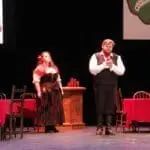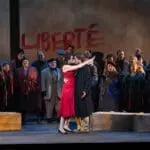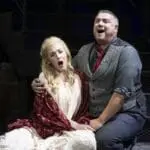Carmen, the opera that Stephen Sondheim once called a non-stop hit parade, boasts a double cast of Carmen and Don José. Sarah Mesko starred opening night beside Alok Kumar as Don José while Ginger Costa-Jackson—stepping in for Carolyn Sproule who had to cancel at the last minute due to illness—pairs on alternate dates with Matthew White. The opera has three more shows; May 2, 4, and 5, 2024 (tickets here).
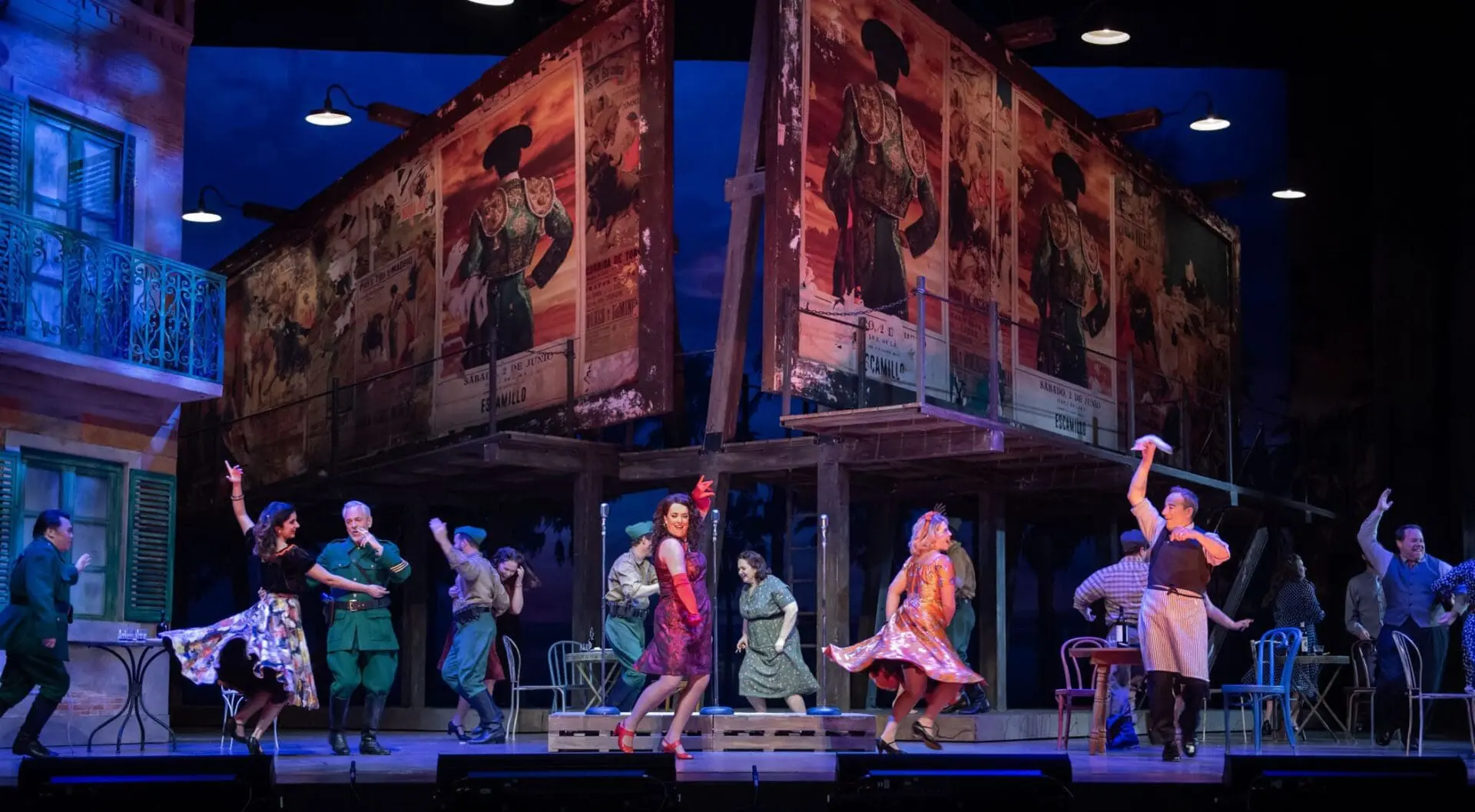
Photo Credit: Emily Cooper
Mesko’s take on Carmen, the Andalusian temptress whose attraction to a young soldier proves fatal, on opening night was underwhelming; she lacked the charisma essential to pull the opera into sharp, seductive focus. The Sunday matinée starring Ginger Costa-Jackson was a different story. The singer who graced the Queen Elizabeth Theatre stage in Vancouver Opera’s 2014 production of Carmen, captivated the audience from her very first scene. Her sinuous, feline moves kept the soldiers and the spectators in rapt attention. Costa-Jackson embodied the role with just the right mix of French coquette and Spanish flair—her hands unfurling like barbed flowers as she taunted the members of a bored battalion with Andalusian arabesques and a perfectly sultry version of “La Habanera”. Her rich, expressive alto voice conveyed Carmen’s frivolity as well as her undeniable need for freedom, but best of all, she was simply having a ball. Her absolute pleasure in the role shone through her performance with a coltish playfulness that saw her at one point breaking the fourth wall, smirking at both the audience and Don José as she bewitched him into setting her free.
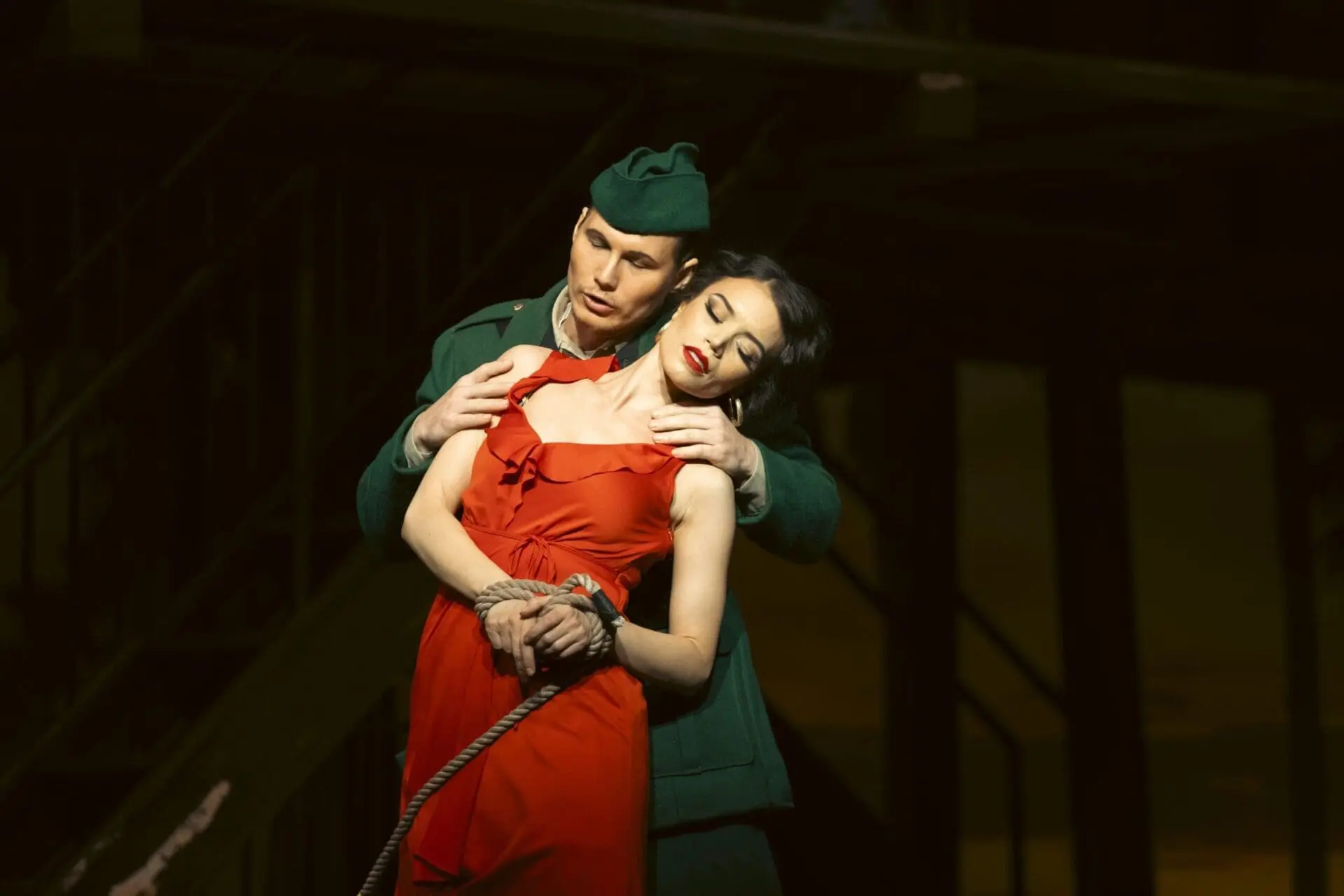
Mathew White and Ginger Costa-Jackson
Photo Credit: Jonathan Nicomedes
And yet in the third act scene where Carmen draws the death card, whilst hiding out with fellow gypsy smugglers, Costa Jackson transcended the libertine party girl persona to reveal a resoluteness and courage to face her fate, adding layers of depth and gravitas. In the final act of opening night, when Carmen emerges ravishing in red with her toreador lover only to meet her untimely fate at the hands of a dishevelled Don José who would rather kill her than give her up, Kumar managed to evoke a certain pathos that had me feeling sympathy for the devil. Although White’s tender tenor voice was as handsome as his features, his Don José never quite transcended the just another jealous guy instigating femicide trope. Oddly enough, the final scene of opening night scored higher for emotional engagement than the subsequent matinee performance—think slow burn that erupts into flames vs incendiary performance that fizzles out.
Delightful constants in both performances were Nathan Keoughan’s scene-stealing toreador who drives into the rollicking party at Lillias Pastia’s inn on a motorcycle like a rock star and the divine Jonelle Sills, whose strong performance as Micäela lends credence to her billing as “one of the most exciting young sopranos of her generation.”
Also noteworthy are Heidi Duncan and Simran Claire’s portrayals of Carmen’s gal pals Frasquita and Mercédès. Their work in the Act 2 party at Pastias conceived as a kind of cabaret by director Rachel Peake and their comical musings on their romantic fortunes at the smuggler’s hang out in Act 3, bode well for the Yulanda M. Faris Young Artists Program they hail from.
Under the musical direction of Leslie Dala, the Vancouver Opera Orchestra was in fine form. But the real stars of the show were the sets and costumes—transposing 19th century Andalusia into mid-century Franco-era Spain. Originally conceived for a co-production with Seattle Opera, Irish National Opera and Opera Philadelphia, the sumptuous sets and costumes by Gary Mccann bathed in a technicolour glow by lighting designer Itai Erdal, add a layer of cinemascopic glamour to Bizet’s quintessential opera.
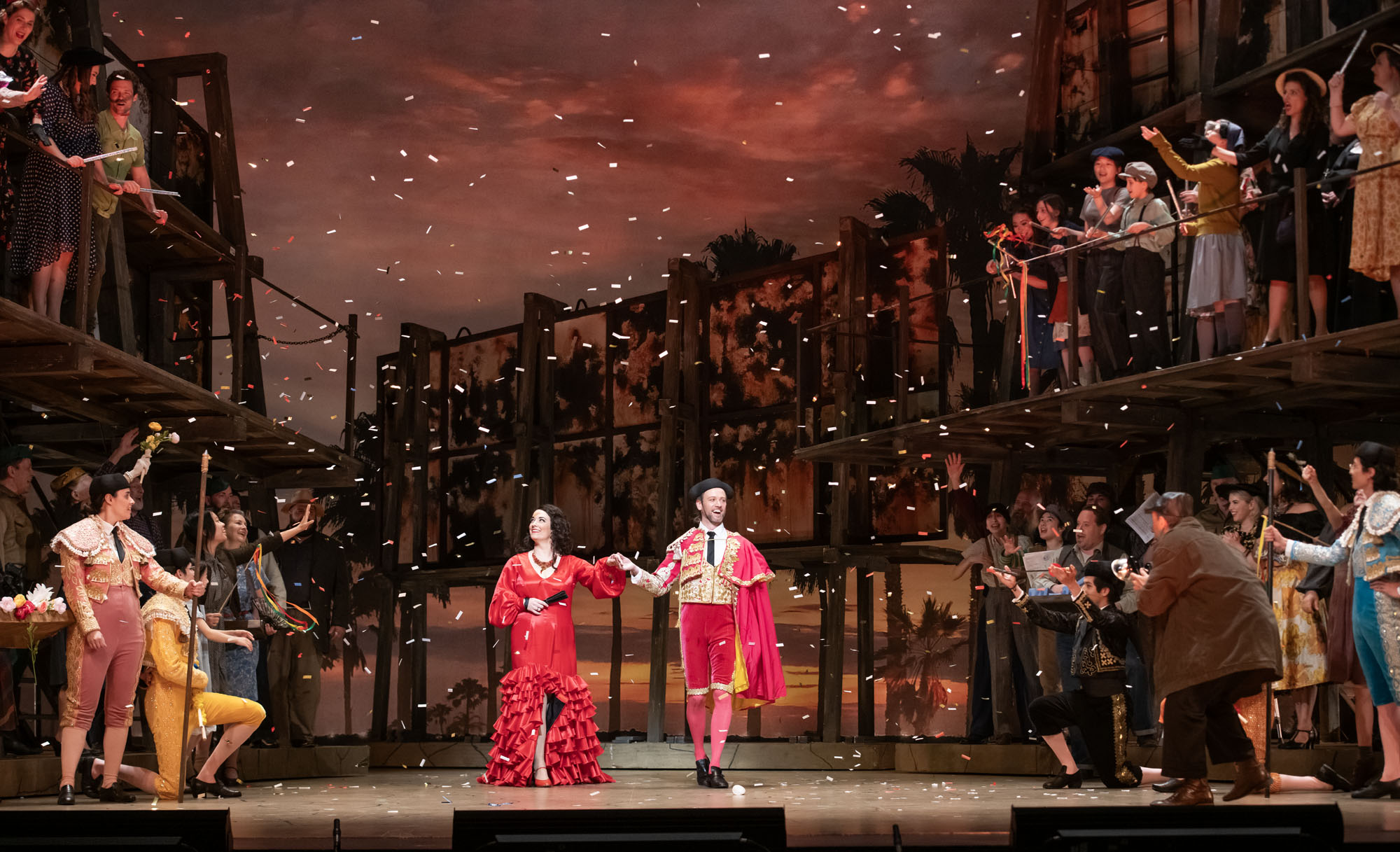
Sarah Mesko and Nathan Keoughan
Photo Credit: Emily Cooper
Related Content ↘
Opera Canada depends on the generous contributions of its supporters to bring readers outstanding, in-depth coverage of opera in Canada and beyond. Please consider subscribing or donating today.


